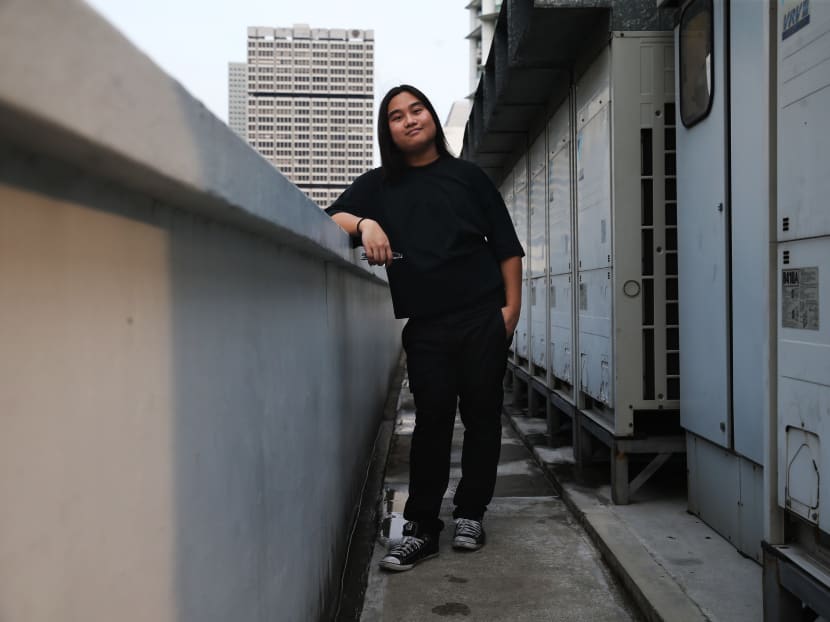Gen Y Speaks: We need to look at films differently
The first Singapore short film I watched that changed my life was Kirsten Tan’s award-winning Dahdi at the Singapore International Film Festival in 2014. I was then a member of the festival’s inaugural Youth Jury and Critics Programme (YJCP), a programme which nurtures tertiary students to become young writers on cinema from the region.

The author says that films can serve as important repositories of cultural contexts and social memories, as they highlight some of the key concerns that society has at present.
The first Singapore short film I watched that changed my life was Kirsten Tan’s award-winning Dahdi at the Singapore International Film Festival in 2014. I was then a member of the festival’s inaugural Youth Jury and Critics Programme (YJCP), a programme which nurtures tertiary students to become young writers on cinema from the region.
Though I had no formal prior film education, I signed up for the programme out of my curiosity for independent South-east Asian cinema; knowing that there is a huge world out there cinematically even in our own backyard.
As I watched Dahdi, I had an awakening to the enormous power and potential of film in telling stories and how it can give depth and meaning to events that would have otherwise been easily forgotten.
Beyond aesthetics and the cinematic language, the film connected with me on a very fundamental level. It told a story of compassion and care between two human beings who could not be more remotely different — an old woman living on Pulau Ubin, and a young Rohingya refugee who washed up from the surf, alone and terrified, ready to bolt — and the greater forces at work that push us into futile situations.
The film was an exemplary specimen of filmmaking done right: Beautiful but accessible; poignant but not preachy. Dahdi demonstrated that a Singapore-made film need not be perceived with an overbearing emphasis on its local-ness.
Beyond the film, the conversations, post-screening sharings, and late night musings I got to share with filmmakers throughout the festival also marked a turning point in how I began to articulate my own thoughts about cinema.
I grew to love analysing films and learning to situate them in their contexts, thus allowing me to read between the lines of films such as Royston Tan’s 15, Anthony Chen’s Ilo Ilo, Boo Junfeng’s Apprentice, and Yeo Siew Hua’s A Land Imagined.
These works skillfully touch on some of the deep-seated issues bubbling under the surface of a nation that thrives on international rankings of excellence with the mechanical grace of a well-oiled machine.
Aside from just telling stories, these films also serve as important repositories of cultural contexts and social memories, as they highlight some of the key concerns that society has at present.
It is important for us to find new ways to think about movies other than as pure frivolous leisure. More than ever, film is a medium through which important social messages and ideas are being communicated and demonstrated.
Some examples include the representational milestone that Crazy Rich Asians served for the Asian-American community, the Lebanese drama Capernaum which drew critical acclaim for its unflinching view into child neglect and the refugee crisis, and even this year’s Palme d’Or winner, Parasite, which explored the impact that socio-economic inequality has on a family in South Korea through a darkly comic approach.
My experience at the YJCP and the friendships I formed with filmmakers have taught me that there are many layers to a film. Beyond entertainment, a film can also be seen as a cultural product of its time and context. It provides insight into how the story and the subject are represented in resonating ways.
Take for example Tan Shijie’s Not Working Today, a Singaporean short film that portrays a lone foreign worker’s struggle for his colleagues and him to be paid their overdue salaries.
There was no vitriol, no histrionics, just the dull resignation of someone who is exhausted above all, fighting for what he was owed.
Without a greater education of the cinematic language, it is easy to dismiss the placid film for being too quiet, too withdrawn; and miss the point that this quietude is an apt representation of the voiceless reality faced by so many of our hardworking migrant workers.
Film, at its core, is a deeply public artistic form, and quality criticism allows the audience to uncover more of a film than they expect in the greater socio-cultural discourse. Charting a way forward in terms of film literacy and criticism is thus key.
Is there life for independent films outside of Netflix and the blockbuster paradigm, as we battle against the Marvels and Star Wars? The somewhat surprising answer is yes.
Beyond digital streaming and the standard theatrical release cycle, film festivals and developmental programmes such as the YJCP allow one to be exposed to different film genres and diverse definitions of what cinema can be, while building one’s own tastes and sensibilities.
It goes without saying that film literacy is important to a viewing public precisely because it inculcates critical skills and the finesse to digest and scrutinise the subtexts of our culture.
As with all major artistic endeavours and art forms, films are so much more than just what you see onscreen.
The true life of films takes place in the real world. It could be in the discourse among the audience as they step out of a cinema, in snippets of excited recommendations from friends, and in the long thought-pieces that surface and debate the deep-set messages carefully crafted by the filmmaker.
There are so many ways to think about films, it would be a shame to just stick to one.
ABOUT THE AUTHOR:
Alfonse Chiu is the creative director and editor-at-large of SINdie, a collective and editorial platform for South-east Asian film culture, and an independent culture journalist whose writings have appeared in international and academic publications.






